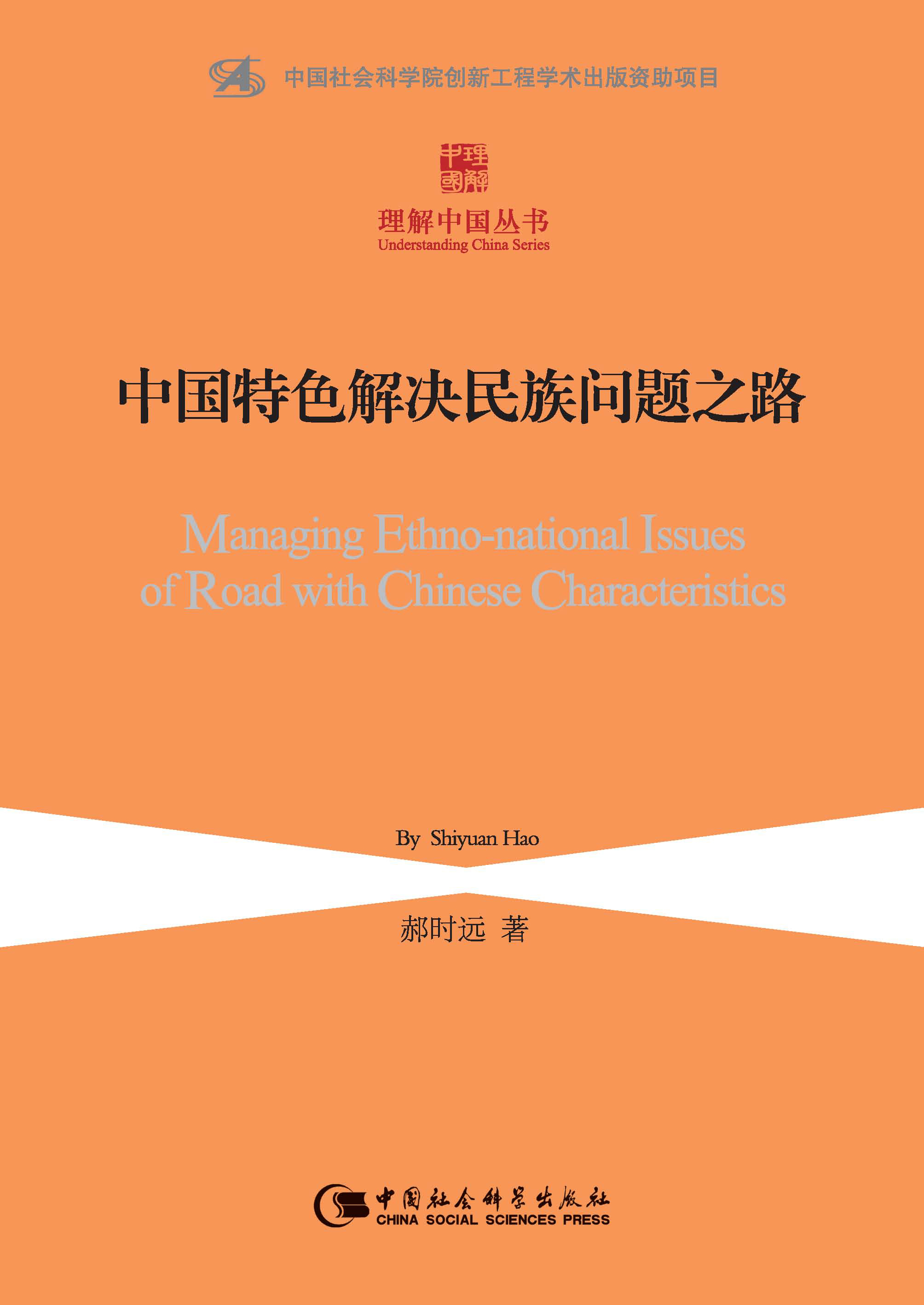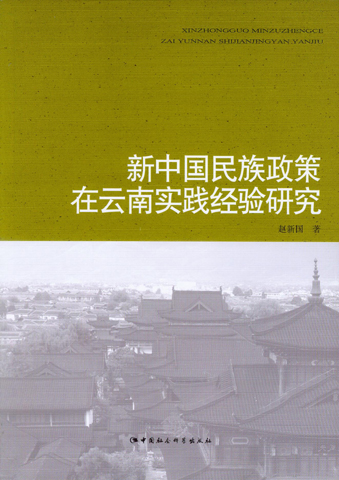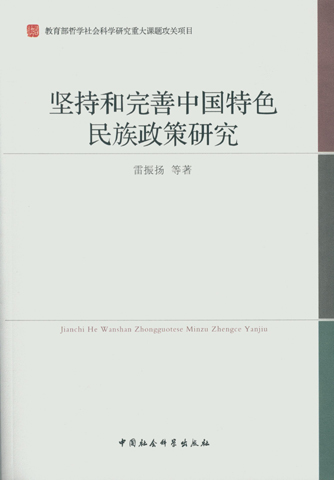内容简介
作者简介
目录
中国是一个历史悠久的、统一的多民族国家,中华民族是一个历经沧桑的多元一体大家庭,这是认识和理解中国最重要的维度之一。在多样中维护统一,在多元中构筑一体,是中国特色解决民族问题的基本理念。中国共产党在延安时期的“中国道路”探索,包括了如何解决中国民族问题的路径抉择,并在新中国建立进程中确立了民族区域自治制度,走出了一条尊重历史、符合国情、顺应人心的解决民族问题之路,具有鲜明的“中国特色”。本书以2014年中央民族工作会议的精神为主线,力图以宏观的视野,围绕民族问题这一全球性的话题,论述中国特色解决民族问题正确道路的理论与实践;从具体入微的实证,在国际比较的视域中,分析了中国解决民族问题的当代主题,即中国各民族人民在物质生活层面缩小差距、共享发展,在精神生活层面尊重差异、认同一体。China is a unified multi-ethnic country with a long history, and Chinese nation, which has undergone many ups and downs, is a big family with a pluralistic integration. This is the most important perspective that people need to take when trying to understand China. The basic guideline of China’s way of managing ethno-national issues is to safeguard unity among diversity and to build integration based on diversification. Based on early exploration of a proper way of solving ethno-national during the Yan’an period, the Chinese Communist Party has finally established the system of regional ethnic autonomy since the foundation of People’s Republic of China. This system carries typical Chinese characteristics because it was built on through understanding of Chinese history and China’s current situations and has reflected people’s demand and expectations. Following the guideline of the working conference of ethno-national affairs of the Central Committee of Chinese Communist Party in 2014,this book has concentrated on the global issue of ethnic problems and elaborated the theory and practice of China’s proper way of addressing its ethno-national issues from a macro perspective. Based on comparative and empirical study,the book has also analyzed specific solutions of ethno-national issues in contemporary China, that is, how China has managed to narrow the gap of people’s material life among different Minzu (民族),make it possible for people of different Minzu (民族),to share the country’s development, and achieve identity integration with tolerance of diversity.
全部显示∨
郝时远,1952年出生,内蒙古人。中国社会科学院学部委员、研究员,2013年当选为蒙古国科学院外籍院士。现任中国社会科学院学部主席团秘书长、社会政法学部主任。兼任中国人类学学会会长、中国世界民族学会会长等。主要从事马克思主义民族理论、国内外民族问题与民族政策、中国民族史、台湾少数民族等研究。代表性著述为《帝国霸权与巴尔干“火药桶”——从南斯拉夫的历史解读科索沃的现实》《中国共产党怎样解决民族问题》《类族辨物——“民族”与“族群”概念之中西对话》《台湾民族问题:从“番”到“原住民”》等。Mr. Hao Shiyuan, born in 1952 in the Autonomous Region of inner-Mongolia, is a researcher and CASS member, secretary general of the academic presidium of CASS and director of the academic division of Social,political and legal studies, CASS. Mr. Hao also was selected as the MAS foreign member in 2013. He is also the chairman of China’s Anthropological Society and chairman of China’s World Ethnic Society. Mr. Hao,s major areas of study involve ethno-national theory of Marxism, ethnic problems and policies of China and foreign countries, history of China’s ethnic people, ethnic groups in Taiwan. His representative works include Empire Hegemony and Balkan Flashpoint: Interpretation the Reality of Kosovo Based on the History of Yugoslavia, How Chinese Communist Party Manages the Ethno-national Issues, Classification of People: A Dialogue on “Nation” and “Ethnic Group”Concept between China and the West, Ethnic Issues in Taiwan: from “Fan”(番)to “Aboriginal People”,etc.
全部显示∨
前言 从延安走来
第一章 历史基因:统一的多民族国家一 “五方之民”共天下
二 秦汉王朝“大一统”
三 不修长城的唐王朝
四 元王朝奠定中国历史疆域
五 郑和远航后的中国
六 清王朝的“康乾盛世”
七 “跪拜”与“行礼”的悲歌
八 “大一统”基因的密码
第二章 百年之殇:边疆裂变的“遗产”一 “莫非王土”遭逢挑战
二 师夷之长技以制夷
三 “甲午折戟”痛失台湾
四 “辛丑之辱”祸及拉萨
五 辛亥后的边疆危机
六 肢解中国的“满洲国”
七 “东突厥斯坦”的梦魇
八 帝国强权的“遗产”
第三章 中华民族:多元一体的大家庭一 步入现代的“五方之民”
二 “五族共和”的国家建构
三 美国“熔炉”的“国族”想象
四 中共定义中华民族
五 “中国各民族”知多少
六 建设中华民族大家庭
第四章 区域自治:民族平等权利的保障一 立足国情的道路抉择
二 顺应人心的民族区域自治
三 多层级的民族自治地方
四 为了共同发展而自治
五 建设新西藏的艰难历程
六 依法实施民族区域自治制度
第五章 缩小差距:共同富裕的平等之路一 破解“胡焕庸线”困局
二 “一盘棋”中“两个大局”
三 西部大开发的“西部”
四 “一线”兴边与“点状”扶持
五 摆脱贫困的“最后一公里”
六 西部的“内蒙古现象”
七 创造青藏高原的奇迹
八 重振丝绸之路的繁荣
九 多民族“家底”与“一带一路”
第六章 尊重差异:构筑各民族共有精神家园一 消除民族歧视的历史痕迹
二 尊重少数民族的风俗习惯
三 满足少数人的多样性需求
四 发展少数民族的语言文字
五 依法保障宗教信仰自由
六 保护和发展少数民族文化
七 中华文化的认同之道
结语 任重而道远
参考文献
索引



